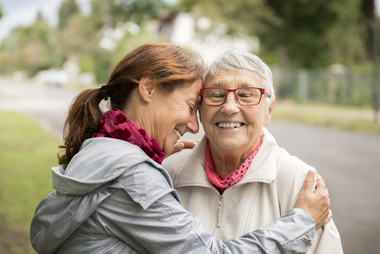Posted in Triplett & Carothers on February 1, 2024
Over three-quarters of the respondents in Fidelity’s 2021 American Caregivers Study understood how difficult taking care of a disabled family member was. They insisted they had no other choice and that the decision was more emotional than practical. Their devotion still takes a toll on their stress levels and own retirement planning, though. At times, they may feel resentful, frustrated or guilty. They do not have the time or energy left over to concentrate on their own financial futures.
A generation loses out on retirement benefits
It is no surprise that most caregivers are female, and often single. We have all heard reports of aging parents turning to their unmarried daughters. The Fidelity survey reported that caregivers provide 28 hours on average per week to adults.
That adds up to a lot of hours, considering that the General Accountability Office estimated that between 2011 and 2017, 45 million Americans were providing care; among them, about 26 million for a spouse and 22 million for a parent or other relative. Some bear a double burden: As the sandwich generation, children born to baby boomers must tend to both their own children and their elderly parents at the same time.
One can then appreciate why 39% of employees departed the workforce for caregiving in 2023, according to Goldman Sachs Asset Management. Furthermore, 22%, driven by similar pressures, reduced their full-time occupations to part time.
The hit to retirement planning
Caregiving has both direct and more hidden costs to retirement preparation. Leaving the workforce, whether temporarily or for good, has a clear impact on long-term financial benefits, such as a 401(k) or workplace savings program with employer matching, health insurance coverage and health savings accounts, and employee stock purchase plans.
Normally, to be eligible for an employer-sponsored retirement plan, employees must work full time, or at least for a specified period. Caregivers who are constantly juggling time and duties often hop from job to job or work reduced hours. Single women in particular, who are already lagging in retirement security, are most likely to switch jobs more often. Those who drop out for four years in their early 30s eventually accumulate 18% less in overall retirement savings, per GSAM.
The predicament is even more dire if they quit the workforce earlier than expected, under the strains of dealing with family care. As a result, they are likely to end up with a depleted nest egg, which they will be depending on for longer. At the same time, the missing years will eat into their Social Security benefits. The GAO has measured these shortfalls. The agency reports that spousal caregivers as a whole end up with fewer retirement assets. They amass 50% less in individual retirement accounts, 39% less in non-IRA holdings and 11% less in Social Security benefits. The entire retirement system mainly revolves around employment.
Do not forget other latent costs of uneven employment. There may be conflicts with work patterns, reflected in lateness, irregular attendance, taking time off and income interruptions. Caregivers who leave or cut back their hours may not only sacrifice their pay but also promotional opportunities and longer job security.
Ask for help
Accept your limits. When caregiving becomes overwhelming and isolating, reach out. Build your network. Consider hiring an eldercare-certified lawyer. Turn to agencies, churches, adult day care and senior centers, or join a support group in your community or online.
It takes teamwork to support the primary caregiver. You may start with a family meeting to discuss roles. Who is most suitable for supervising personnel; interacting with medical professionals; and dealing with bills, bank statements and insurance? Who can travel? You might coordinate vacations and holidays and budget together as a group to cover costs.
For right now, collect critical information — medications, insurance, power of attorney, phone numbers — and display it somewhere obvious.
If you are at or near retirement, you should be paying extra attention to your own health and well-being. Ask a retirement professional to help map out how to incorporate caregiving into your plans.
Reach out to Roz Carothers and her team at Triplett & Carothers to learn more.
©2024


